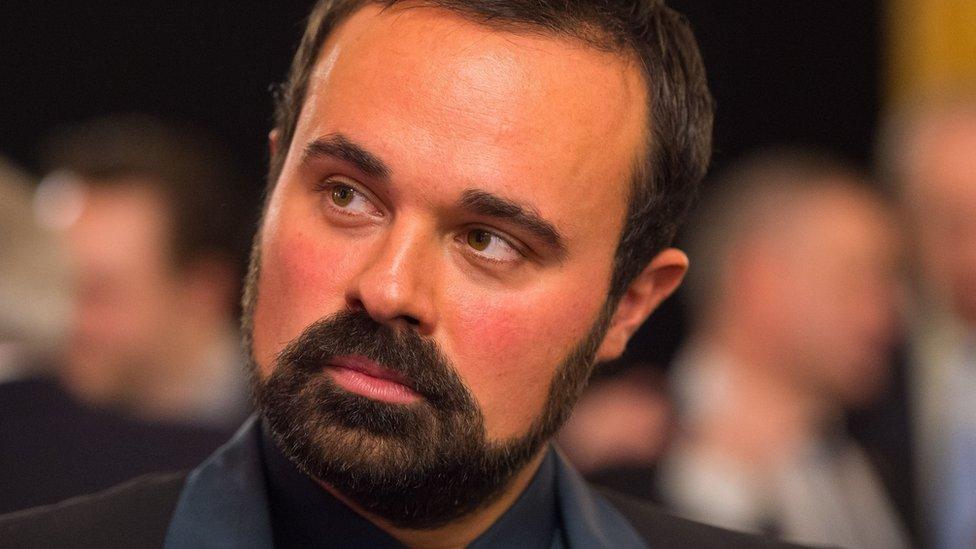Evgeny Lebedev peerage was 'special case', says chair of vetting committee
- Published

Lord Lebedev became a crossbench peer in July 2020 after being nominated by Boris Johnson
Evgeny Lebedev's application to join the Lords was "a special case", said the committee chair who vets peerages.
Boris Johnson has been under fire after nominating his friend, who became an independent peer in July 2020.
Last month, MPs voted for documents on the decision to be published, but Lord Bew denied any interference to his committee's process.
He told MPs: "There was no pressure on this issue from No 10 or the prime minister."
While the confidential information on the decision has yet to be made public, Lord Bew hinted it could emerge "in the coming days".
Newspaper owner Lord Lebedev is the Russian-born son of a KGB agent Alexander Lebedev, and fresh questions arose about the security risk he could pose to the UK after Russia's invasion of Ukraine.
He denied posing a "security risk" to the country and he backed the publication of the security advice, tweeting: "I have nothing to hide."
Labour claimed the House of Lords Appointment Committee (HOLAC) - which Lord Bew chairs - advised the PM against giving the businessman the honour.
The party says it changed its mind after Boris Johnson overruled security service concerns.
The Public Administration and Constitutional Affairs Committee, made up of MPs, is looking into the role of HOLAC after the controversy surrounding Lord Lebedev's peerage.
Mr Johnson is known to have been aware of security service concerns, with former No 10 adviser Dominic Cummings saying he was "in the room" when the prime minister was told intelligence officials had "serious reservations" about the move.
Another source has confirmed to the BBC that concerns were raised by security services.
Giving evidence to MPs, Lord Bew said there was "uncertainty" around Lord Lebedev's case, and a "special set of circumstances" when it came to the businessman - pointing to his father's former job.
"It would be ridiculous not to say that this isn't a case of particular complexity with many wrinkles to it," he said.
"How much is someone responsible for his father etc?"
But he claimed Lord Lebedev went through the usual vetting process and no-one interfered with the committee's work.
"At no other point was there pressure placed on us on this case," he said.
'Take the flak'
Lord Bew also denied trying to block the peerage, saying rather than warning against appointing him, the committee merely warned about a public backlash.
The chair confirmed a letter to No 10, saying: "You are going to have to take the flak for it if you go ahead."
Lord Bew added: "We are uncomfortable with the use of the word 'warning' with respect to any of the advice we have ever received from any of the agencies [on peerage applications].
"What we get are facts which we are asked to interpret and reflect upon."
He did admit HOLAC "needed clarification" on what was sent to them by security services on Lord Lebedev, and the response took "weeks".
But he said: "You know we did not say no to the prime minister [on Lebedev] - you know the bottom line. as the Americans would say."